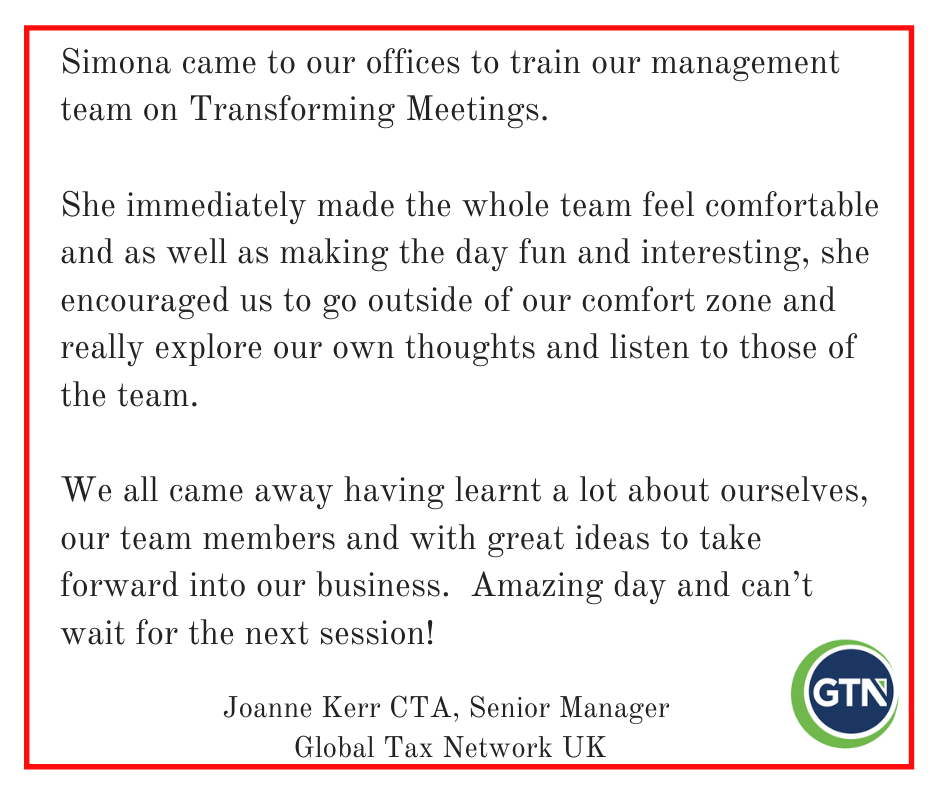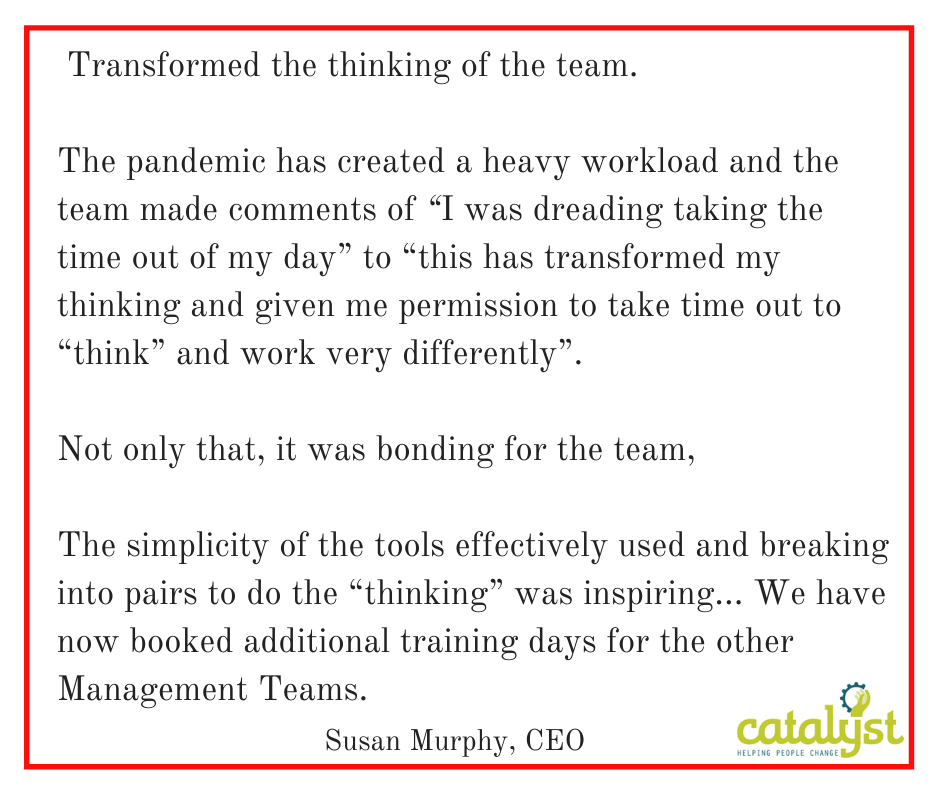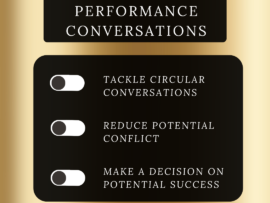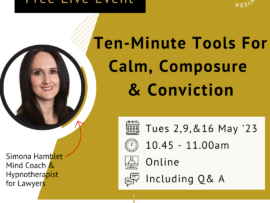The Unstuck Lawyer®
when one of those days is every day
Leadership, management, and fee earner training.
For better performance, productivity, passion, and profit.

Confidence
Recent promotion, developing management skills, self-assurance

Money
Comfortably charging clients, hitting targets, firm growth

Performance
Energy, resilience, team, motivation, self-accountability & direction

Responsibility
Self-sustaining teams, self-accountable individuals, fees

Time
Prioritisation, productivity, time recording, delegation

Vision
Cultural shift, tackling behaviour, coaching, creating change
In-house Training for Solicitors, Legal Executives, Partners, CEO’s & Firm Owners
Effective Challenging Fee-Earner Performance Conversations

Many legal managers are struggling with team members who do not seem to be proactive and self-responsible. Often struggling to take action with ongoing learning and skill development. Feedback seems to be ignored and expectations not understood.
If the current approaches are not working, then what else can be done?
Do you want to deal with challenging conversations more readily? Stop repeated conversations about how team members need to improve with nothing happening?
This training allows attendees to:
- hold performance and behaviour conversations easier
- find a new coaching approach that doesn’t need the ‘perfect script’
- become clearer on why you find some people ‘difficult’
- understand different barriers to receiving information
- replace counter-productive language and behaviour
- identify your natural response to conflict or manage strong emotions (yours and theirs)
- improve the likelihood for change
- increase self-motivation and accountability to make it happen
Delegates will be given practical tools to communicate more effectively, feel more confident, and improve the quality of the outcomes. Limiting repeat conversations, and frustrating lack of action.
Psychology of Time Management for Lawyers
It is no longer seems possible to achieve all we want to each week, and yet fee-earners and legal leaders must ensure the fee-earning, administration, regulatory, management, and marketing activities all take places consistently.

For some, this means learning new time-management techniques. For others it means implementing new or previously discarded time-management techniques. For many, even when knowing the techniques, and wanting to implement them, we are still not doing so. Why is this?
This training helps to identify the different time-mangement techniques available to lawyers, and the psychology behind why we might resist it, and what to do instead. Topics include:
- typical challenges in time management for lawyers
- the reality that all work is no longer achievable each week, and what to do instead
- best time management tools and techniques for lawyers
- the impact of perfectionism, imposter syndrome, people pleasing, and conflict avoidance, has on time management
- the truth behind procrastination, and what to do instead
- tips to overcome resistance to new approaches and implement tools known to work
Working through each of these, attendees can leave with a practical and realistic approach to feel more in control of their weeks, and have time to implement tasks, and leave work at a reasonable time. Coaching is also available afterwards, to discuss further questions when implemented, work through any tweaks for individuals when challenges arise, and ensure sustainability.
Improved Billing – Charging Clients With Confidence

For many firms time recording and billing remains an issue, with time being discounted both at the recording stage (intentionally or unintentionally) and again at the billing stage.
Training or internal approaches typically look into tackling responses around technology, and how to improve ‘time management’ for time recording, and a carrot and stick approach linked to bonuses.
However, when it comes to lost time, there is often far more going on and is rarely looked at.
This training delves deeper into understanding what truly gets in the way of fee earners recording their time, including what is often never discussed, the discomfort around charging certain types of clients. Often made worse at junior level.
Where the culture of the firm might feed into it, and where the individual’s money mindset plays a role. This training helps for that to be recognised, understood, and improved. Alongside some practical tools to make billing an easier process. Leaving fee earners more confident to record their time and improve billing.
Anxiety, Stress, Ruminating, and Worry – How To Enjoy Life As a Lawyer
Whilst there is much being discussed on resilience, for many, this in itself feels like more hard work. Particularly when we often experience strong inner critical voices, imposter niggles, and challenges with perfectionism.

Procrastination is often incorrectly assumed to arise from laziness or lack of motivation. Perfectionism considered a positive trait. Confidence confused with self-assuredness.
With each of these, if not understood, it can have an impact to include:
- tasks and projects not being started or not being completed (unless there is a strong external deadline)
- an underlying dread of not being good enough, of it all being a fluke, ongoing comparison
- marketing materials not being released
- constant worry of making mistakes, being criticised, doing the wrong thing
- feeling confident one moment, and then it being lost the next
Working through each of these, attendees can realise these are common, what they really mean, and most importantly, what can be done about it.
Coaching For Lawyers
 With an ongoing need to ensure productivity, and professionalism, whilst balancing wellbeing. Coaching
With an ongoing need to ensure productivity, and professionalism, whilst balancing wellbeing. Coaching
Coaching for Lawyers training includes
Beginners:
- Understand the difference between coaching and mentoring and when to use them
- Know how to effectively plan for coaching sessions and develop impromptu coaching skills
- Learn and implement simple yet crucial coaching skills
- Develop confidence and implement coaching in the law firm
Intermediate (as above and)
- Understand what can derail coaching and how to avoid this
- Learn further techniques for effective coaching, including at senior levels
Coming soon – ILM Accreditations
Transforming Meetings®
 Who enjoys meetings the most? Typically the Chair, and even then they can take up more and more time.
Who enjoys meetings the most? Typically the Chair, and even then they can take up more and more time.
With meetings still on the rise, particularly online, are you finding that meetings are becoming less productive. With some voices being heard, and others not at all. Or perhaps the same topics coming up time and time again, with little movement forward.
Transforming Meetings® training creates:
- Meetings that are both engaging and create high quality ideas
- A culture where everyone feels valued and heard
- Strong, robust, and actionable decisions
- Respectful and useful discussions
- Inclusivity, diversity, and creative new ideas
- Fewer meetings from better results
Skills developed for everyone attending, include active listening, respect, inclusivity, diversity, creating psychological safety, better thinking. For those who run meetings, it includes practical skills for running meetings, setting agendas, and managing meetings, in a productive and easy to understand way.
All team members and team leaders benefit from attending the training. It can therefore be run for team leaders, or whole teams themselves.
Delegates who came to this, and have previously attended meetings training elsewhere, expressed how they wish they had come to this sooner, for its ease, value, and change of thinking.


New To Partnership
 Leadership skills are often seemingly required overnight. One day, an individual is a legal expert in their field. The next day suddenly responsible for others such as support staff, solicitors in their department or teams, or beyond, if stepping into the role of a partner.
Leadership skills are often seemingly required overnight. One day, an individual is a legal expert in their field. The next day suddenly responsible for others such as support staff, solicitors in their department or teams, or beyond, if stepping into the role of a partner.
Whether moving from solicitor to associate. Senior associate to Head of Department. Or partner to managing partner. Each transition brings with it new challenges.
When creating leadership programmes, training often includes:
- gaining clarity on what is expected in that new role, and how to manage the transition, including relationships with former peers
- how to handle new situations and obligations, with confidence, whilst developing expertise and knowledge
- consideration of business acumen, tactical thinking, and making those decisions which may have greater impact, despite uncertainty
- developing leadership, interpersonal, and behavioural skills, such as delegation, giving and receiving feedback, providing direction and motivation
- enhancing management skills such as running meetings, handling challenging situations, client complaints, dealing with performance
- refining business growth skills that may include networking, public speaking, marketing, and generating work for others
- understanding firm needs, finances, and regulatory changes
- managing competing claims on time, wearing different hats, and prioritising key tasks
For those who are starting out in junior roles. Training helps those who attend feel reassured that what they are experiencing is not unusual, before helping them identity the key areas of strengths, skills, and responsibilities, needed for their role and for future promotion.
Senior fee earners and partners, the focus often on upskilling, generating greater awareness across all areas, closing skill gaps, and generating personal development plans.
Training can also be supported with coaching to help imbed changes, allow for trial and error of new techniques, and create a sounding board for new ideas or upcoming situations.
Managing People Within the Law

Even within law firms, performance or behavioural challenges can arise. If line managers are feeling less that confident, to tackle situations as and when they arise, or deal with grievances or disciplinaries correctly, matters can escalate. Whilst many firms have employment solicitors or hr support. Sometimes it can be useful (and more cost effective) for an external trainer to come in and provide the training.
Are you finding that lateness, sickness, not completing work, or other day to day unacceptable behaviours, are not being addressed early on by managers?
Is there a lack of confidence or understanding, of what can be done, and when?
Perhaps there is a sense of discomfort, friction, or unease. Meaning that individuals are repeatedly left unchallenged.
Or it might be, that you want your line managers (at all levels of seniority) to be reminded of your policies and procedures. So that they can tackle poor performance, absences, conflict, unacceptable behaviour, and misconduct, with greater confidence.
Is too much time being taken up by senior management dealing with situations that could have been dealt with sooner?
This training typically includes a combination of helping line managers (of all seniority)
- Identity unacceptable behaviour early on.
- Learn how they can tackle it on the ground, before it escalates.
- Identity when is the best way to manage that situation within formal grievance or disciplinary procedures.
- Know how best to run formal and informal meetings or hearings, with helpful tips for giving feedback, dealing with performance conversations, or questions to ask during any formal meetings or hearings.
- Understand how the law firm’s employment policies are useful to them. What they can learn from the specific wording used, and how they offer guidance of what to do.
All for greater confidence and buy in. Including, if necessary, working with HR.
CLIENT SUCCESSES
Return On Investment
Whilst there are various tools out there, many businesses choose the following:
- comparison of before and after surveys on self-rated behaviours
- 360 appraisal comparison
- tracking employee retention, absences, and grievances
- monitoring profitability or cash flow
- recording customer or client retention, cross-referrals, or business development opportunities brought in
- an overall litmus test of the firm’s culture and atmosphere
Leadership training (and coaching) for fee earners includes upskilling in:

- increased fee earning through processes
- managing challenging clients
- work prioritisation and timekeeping
- networking and marketing skills
- confidence and assertiveness
- team working and cross referrals
- handling conflict and maintaining relationships
- profit and mindset
- goal setting
- growth mindset
- understanding feedback for greater performance
- wider perspectives and thinking
- self-accountability & responsibility

Leadership training (and coaching) for partners provides advanced skills in
- increasing business acumen and focus
- looking for new opportunities for the firm
- dealing with difficult situations or personalities
- supervising and motivating others
- improving interpersonal skills and delivering effective feedback
- gaining a wider perspective than their case load or department
- leading change or teams and running effective meetings
- developing financial and marketing confidence
- understanding their position as a role-model for behaviour
- delegating and improved productivity
- enhanced time management skills for new priorities
- assertiveness and networking skills
- developing balance and whole life prioritisation
Leadership & culture
Fee earners need to be able to work effectively to avoid:
- errors being made
- losing time on unnecessary tasks
- having low resilience in challenging situations
- taking their work home
- working excessively
- feeling stressed and overwhelmed
- leaving
Where does your workplace culture need a tweak?
Firm & culture
- allow fee earners to feel safe if an error is made
- create a natural feedback environment
- have role-models in senior positions
- encourage learning
- set reasonable and supported billing targets
- allow for staff to openly discuss concerns, gaps in knowledge, or challenging cases
- ensure all fee-earners excel to increase cross referrals
- develop coaching and a positive mental health approach
- ensure employees feel valued and see opportunities for personal growth and promotion
Blogs & Events
Ready for greater success?
Book your free online coaching session today.






